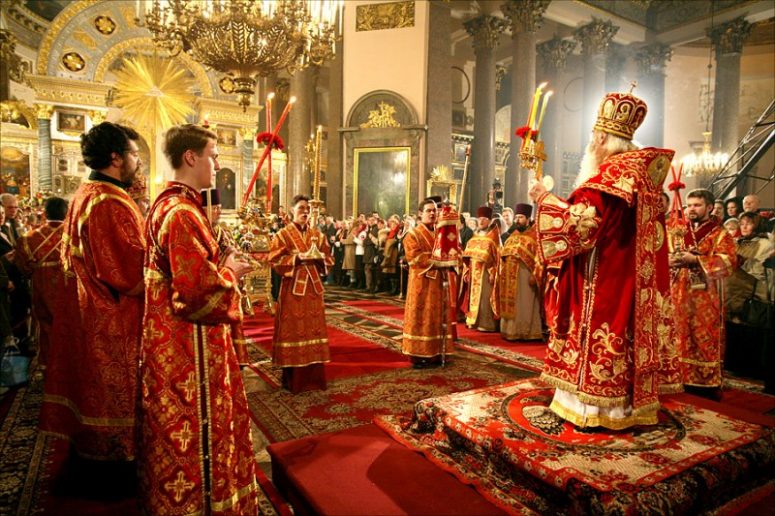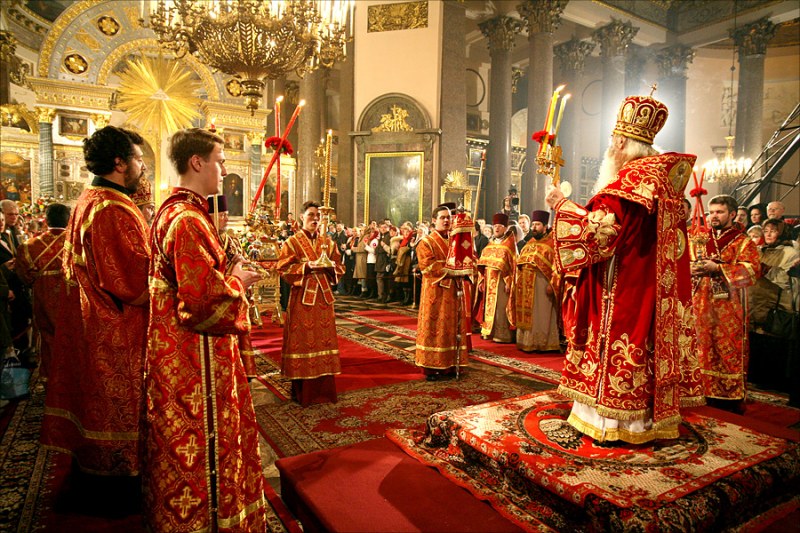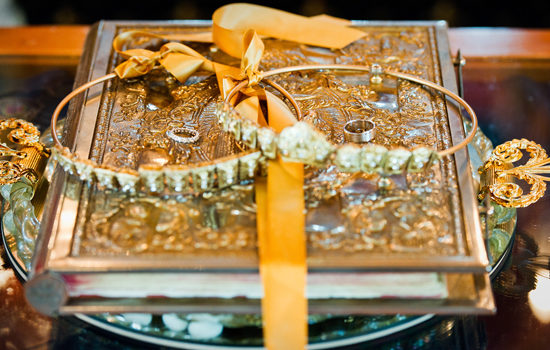
A story of Eulogius the Stone-Cutter, narrated by Saint Daniel.
Fortunately, brothers, there are enough God-loving souls even nowadays. In spite of the fact that they are poor, they never cease to build their salvation through acts of mercy and share everything they have with the needy. As you might guess, those merciful people may sometimes think, “If only we were rich, we could do so much more for the destitute! If only the Lord would have blessed us with wealth, we could nurture so many widows and orphans!” We sometimes also say, “Ah, if only that person were rich, then he could do so much good and make so many other people rich!” Sadly, we are mistaken.
There was an elderly monk who went into a certain village to sell his produce. He met a commoner who was going home surrounded by the poor and the miserable. The elder followed them into the man’s house. He washed the feet of all those people, fed them, and comforted them. The elder learned that the man who cared for the poor was Eulogius – a stone-cutter who shared his daily wages with the poor every day. He thought to himself, “What if that man were rich? He’d do so much good!” He began praying to God to make Eulogius rich. The elder’s prayer went through to the Lord, and the Lord said to the elder, “It’s better for Eulogius to remain where he currently is; but if you insist, I can make him rich, if you are willing to vouch for him.” “Yeah, Lord,” the elder responded. “I vouch for the salvation of his soul!” The following day, Eulogius went to his workplace as usual and started cutting the rock. He cut out a hole and saw a cave filled with gold. Eulogius hesitated for a moment but then decided to take all gold to his house in secret. He forgot all his poor friends and spent several nights moving the gold from the cave into his house. Then he went to Constantinople, bought a huge palace, and became an aristocrat. Two years passed, when the elder saw in a dream that Eulogius was being cast away from the Lord’s face. The hermit was terrified and went to the village where he had met Eulogius for the first time.
It took him a long time to search for the man until he realized that the man was nowhere to be found. He saw an old woman in the street and asked her, “Is there a man who cares for the poor in your village?” The old lady replied, “Alas, we used to have such a man, who was a stone-cutter but he is now a lord and he’s left our village.” The elder exclaimed, “Woe to me! I’m a murderer!” He boarded a ship and sailed to Constantinople. He found Eulogius’ home, and sat at the gate waiting for the house owner. Finally, he saw Eulogius, surrounded by his slaves – a proud and arrogant man. The elder prostrated in front of Eulogius and exclaimed, “Mercy, I want to tell you something!” Instead, Eulogius ordered his servants to beat the elder up. He went to meet Eulogius for the second time, and they beat him up again. And again, when he met him for the third time. Desperate, he wanted to return home. He embarked a ship and fell unconscious. He saw another dream, in which the Lord was surrounded with Angels and looked very angry. The Lord ordered his Angels to cast the elder away because the elder was guilty of Eulogius’ spiritual death. However, the Mother of God appeared and pled with the Lord to forgive the elder. The Lord told the elder, “Now beware: don’t ask me for something you don’t know anything about. I’ll send Eulogius back to where he was from.” The elder got up happy and thanked the Lord and his most pure Mother with tears. What happened next? Emperor Justin, who had liked Eulogius, died in Constantinople. The new emperor ordered to divest Eulogius of all his possessions and kill him. Eulogius had to escape. He fled until he reached his native village. At first, he ran to the rock hoping to find some more gold. But there wasn’t any. He came to his senses and started caring for the poor again. When the elder learned about it, he praised God.
Now you see, brothers, how misguided our assumptions may be sometimes and how dangerous our dreams about changing our environment are. Aside from everything else, those dreams take away the time for doing good and distract us from good deeds, and therefore impede the very roadmap of our salvation. Let us work for the glory of God, even if not where we want and not wishing anything other than what we already have: instead, let us work where God has put us and using the means that we have got. Amen.
Translated by The Catalog of Good Deeds





That was a very inspiring story. Thank you for posting it.